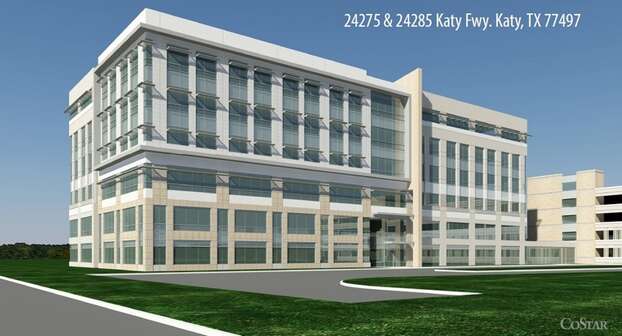Katy economy strong despite oil industry downturn

“Katy has kept pace with the greater Houston metro in terms of economic diversification,” said Lance LaCour, the council’s president/CEO. “Between 2013 and 2014, the Katy area added nearly 5,000 new jobs in the engineering, accounting and research industries. Couple this with strong growth (more than 3,000 new jobs) in the services industry over the same time period as well as attractive, new class A office space coming online this year for prospective employers and the overall outlook is far from bleak,” said LaCour in a news release.
The Katy Ranch project, a six-story, 151,000-square-foot office building situated along the Katy Freeway as well as the three-story, 128,000-square-foot Mason Office Creek II are both newly available and provide options for employers in the tech and financial services space and other industries that are still thriving in Houston, he said.
For example, U.S. Silica Co., one of the largest domestic producers of commercial silica, recently leased 17,464 square feet at Katy Ranch Phase I office building, said LaCour.
Michael Baker International, a survey and civil engineering firm, has also recently committed to the Katy area. The firm has announced plans to open an office in the Grandway West Building 1 in late June, said LaCour. In total, more than 1.4 million square feet of space has been leased in either new or expanded offices in the Katy area since the beginning of 2014, he added.
“We are seeing strong demand for quality, class A space in the Katy area,” said Bob Cromwell, managing director at Moody Rambin, who is directing leasing at Mason Creek Office Park. “We are encouraged by the variety of industries represented by the prospective tenants that are interested in this office space. The affordability and high quality of the Katy office market coupled with a strong employee base has always appealed to a broad swath of industries.”
A March 14, 2015 article in “The Economist” asserted that the Houston metro area, which includes Katy, will find that its “spectacular growth will be slowed rather than stopped by the oil slump.” The article further noted that if this region avoids major economic fallout due to the oil industry contraction, it will be because the area “has reached a critical mass where employers keep moving in because others are already there.”
“Pundits, historians and urbanists are continually baffled by the way our region consistently produces strong growth despite the fact that we buck all of the trends of what constitutes a successful urban area,” said LaCour. “But what they fail to recognize is that our community has put in tremendous effort over the past several decades to both diversify our economy in a way that is complimentary but not dependent on the oil and gas industry, as well as create incentives through low taxes, affordable business space and the highest quality of life in the United States today, which has resulted in our region becoming an absolute magnet for employers.”
[“source-chron.com”]
